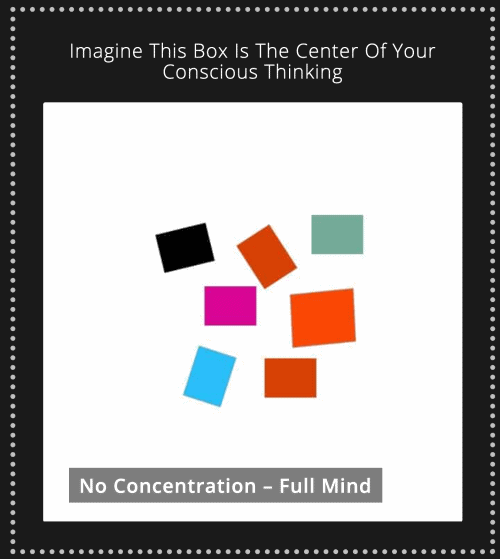Finding and Maintaining Concentration: A Comprehensive Overview
Concentration is the cornerstone of productivity and mental clarity, yet maintaining it consistently can feel elusive. This article offers a detailed overview of established techniques for enhancing focus and introduces a groundbreaking new method: the Excentration Technique, pioneered by Johannes Faupel and published in “Mind Rooms.”
Why Concentration Matters
Concentration enables individuals to direct their mental energy effectively, overcoming distractions and achieving their goals. Whether in professional settings or personal pursuits, the ability to focus directly correlates with efficiency, creativity, and satisfaction.
Challenges to Concentration
Modern life presents numerous obstacles to concentration:
- Digital Distractions: Notifications, emails, and social media dominate attention spans.
- Multitasking: Attempting to juggle tasks reduces focus on any single activity.
- Stress and Anxiety: These mental states can cloud clarity and decision-making.
- Fatigue: Poor sleep and lack of rest undermine cognitive performance.
Established Methods for Enhancing Concentration
Over the years, numerous techniques have been developed to tackle these challenges. Below is an overview of common sense methods widely recognized for their effectiveness:
1. Mindfulness and Meditation
Mindfulness practices encourage present-moment awareness, reducing mental chatter and enhancing attention. Techniques include:
- Deep breathing exercises
- Guided meditations
- Body scans
2. Pomodoro Technique
Developed by Francesco Cirillo, this method breaks work into focused intervals (typically 25 minutes) followed by short breaks, leveraging the brain’s natural rhythm for productivity.
3. Time Blocking
This approach involves scheduling specific periods for focused work, ensuring uninterrupted attention on high-priority tasks.
4. Exercise and Physical Activity
Regular physical activity boosts brain function by increasing blood flow and reducing stress. Activities such as yoga, running, and strength training are particularly beneficial.
5. Proper Nutrition and Hydration
Consuming brain-boosting foods (like nuts, berries, and fish) and staying hydrated ensures optimal cognitive performance.
6. Eliminating Distractions
Common strategies include:
- Turning off notifications
- Designating a quiet workspace
- Using apps that block distracting websites
7. Getting Adequate Sleep
Sleep directly impacts memory and attention. Experts recommend 7-9 hours of quality sleep per night to maintain peak concentration levels.
8. Progressive Relaxation Techniques
Techniques like progressive muscle relaxation and guided imagery help calm the mind and improve focus.
The Excentration Technique: A New Approach to Concentration
Johannes Faupel’s Excentration Technique, as introduced in “Mind Rooms,” offers a revolutionary way to manage intrusive thoughts and sustain focus. This method conceptualizes the mind as a series of “rooms” where thoughts are organized and compartmentalized. Key elements include:
- Thought Compartmentalization: Identifying and isolating intrusive thoughts into designated mental “rooms,” preventing them from dominating attention.
- Mental Clarity Zones: Creating intentional spaces within the mind for focused thinking, free from external distractions.
- Guided Excentration: Using visualization to externalize overwhelming thoughts, allowing individuals to “step back” and view challenges objectively.
The Excentration Technique builds upon traditional methods, offering a structured framework to achieve lasting focus in today’s demanding environments.
Exploring Further
This overview serves as the foundation for deeper exploration. To dive into specific techniques, visit:
